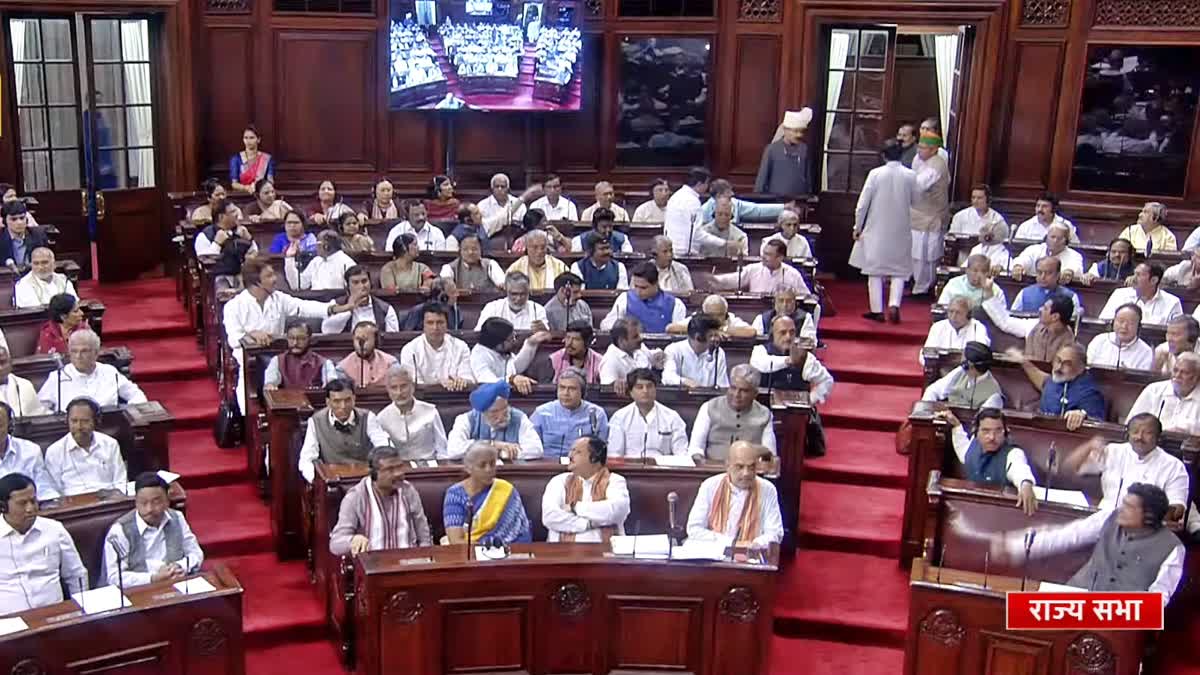New Delhi: The bureaucrats claimed that the administrative apparatus of the Delhi government will get streamlined after the Government of National Capital Territory of Delhi (Amendment) Bill, 2023, was passed by parliament. On implementation, the act, according to them, will bring clarity on the issue of control of services in the national capital.
The GNCTD (Amendment) Bill, 2023 gives the central government control over bureaucrats in the Delhi government after the Rajya Sabha passed it with 131 votes in favour and 102 against.
Corruption free governance promised- Union Home Minister Amit Shah who introduced the bill in the Upper House of Parliament said the proposed legislation is aimed at providing effective and corruption-free governance in the national capital. The bill was passed by the Lok Sabha last week. With its passage in the upper house, it has replaced an ordinance promulgated by the Centre for handling the transfers and postings of officials in the Delhi government.
Services in Seventh Schedule of Constitution- The passed bill has done away with the contentious Section 3A of the ordinance which offered no control to the Delhi Legislative Assembly over the services under Entry 41 of List II of Seventh Schedule of the Constitution. Entry 41 of List II of the Seventh Schedule of the Constitution governs the State public services and State Public Service Commission.
The NCCSA- The amendment provides for the establishment of the National Capital Civil Services Authority (NCCSA). The authority will comprise the Chief Minister who will serve as the chairperson, the Principal Home Secretary of Delhi as the member secretary and the Chief Secretary of Delhi, who will serve as a member.
"The Authority shall have the responsibility to recommend the transfers and postings of all Group 'A' officers and officers of DANICS serving in the affairs of the government of National Capital Territory of Delhi but not officers serving in connection with any subject matter, either fully or in part, connected with Entries 1, 2 and 18 of List II of the Seventh Schedule to the Constitution; and Entries 64, 65 and 66 of List II of the Seventh Schedule to the Constitution... which is connected therewith or incidental thereto, to the Lieutenant Governor...," the amendment act said.
Entries 1, 2 and 18 of List II of the Seventh Schedule of the Constitution relate to Public order, Police and Land. Entries 64, 65 and 66 of List II of the Seventh Schedule to the Constitution relating to offences against laws with respect to any of the matters in the list, jurisdiction and powers of all courts, except the Supreme Court and fees in respect of any of the matters in this list, the amendment read.
How CM becomes minority- According to the bill, the "quorum for the meeting of NCCSA shall be of two members". This indicates that despite the absence of the CM, the other two members can hold the meeting.
LG wields power- It empowers the Lt Governor to approve the recommendations of the NCCSA or ask for a reconsideration. It also that in case of a difference of opinion, the decision of the Lt Governor shall be final.
The bill states that in case the secretary to the Council of Ministers is of the opinion that the proposal considered and decided by the council is not in accordance with the provisions of any law, "it shall be the duty of the Secretary to the Council of Ministers to bring it to the notice of the Lieutenant Governor for taking a decision thereon".
Controversy management- "Any matter which is likely to bring the government of National Capital Territory of Delhi into controversy with the central government or with any state government, the Supreme Court of India or the High Court of Delhi and such other authorities as may be determined, the Secretary to the Department concerned shall, as soon as possible, bring it to the notice of the Lieutenant Governor, the chief minister and the chief secretary in writing," it says.
Compliance- The Chief Secretary and the Secretary to the department concerned shall be responsible for compliance with the provisions of the GNCTD (Amendment) Act, and "when either of them considers that there has been any material departure from the same, instead of giving effect to such departure, he shall personally bring it to the notice of the minister in-charge, the chief minister and the Lieutenant Governor immediately in writing".
- " class="align-text-top noRightClick twitterSection" data="">
Appointment to authorities, boards and commissions- The Bill also states that the power to appoint authorities, board, and commissions will be with the President for any law of Parliament while for laws made by the Delhi legislative assembly for the time being in force, the NCCSA shall recommend a panel of suitable persons for constitution or appointment or nomination by the Lt Governor.
No accountability for NCCSA-The bill has also done away with the provision mandating the NCCSA to submit an annual report to the Centre and Delhi government. The original provision provided for tabling this annual report in the Parliament and the Delhi Legislative Assembly. The ruling AAP in Delhi dubbed it as a measure to "remove accountability".



